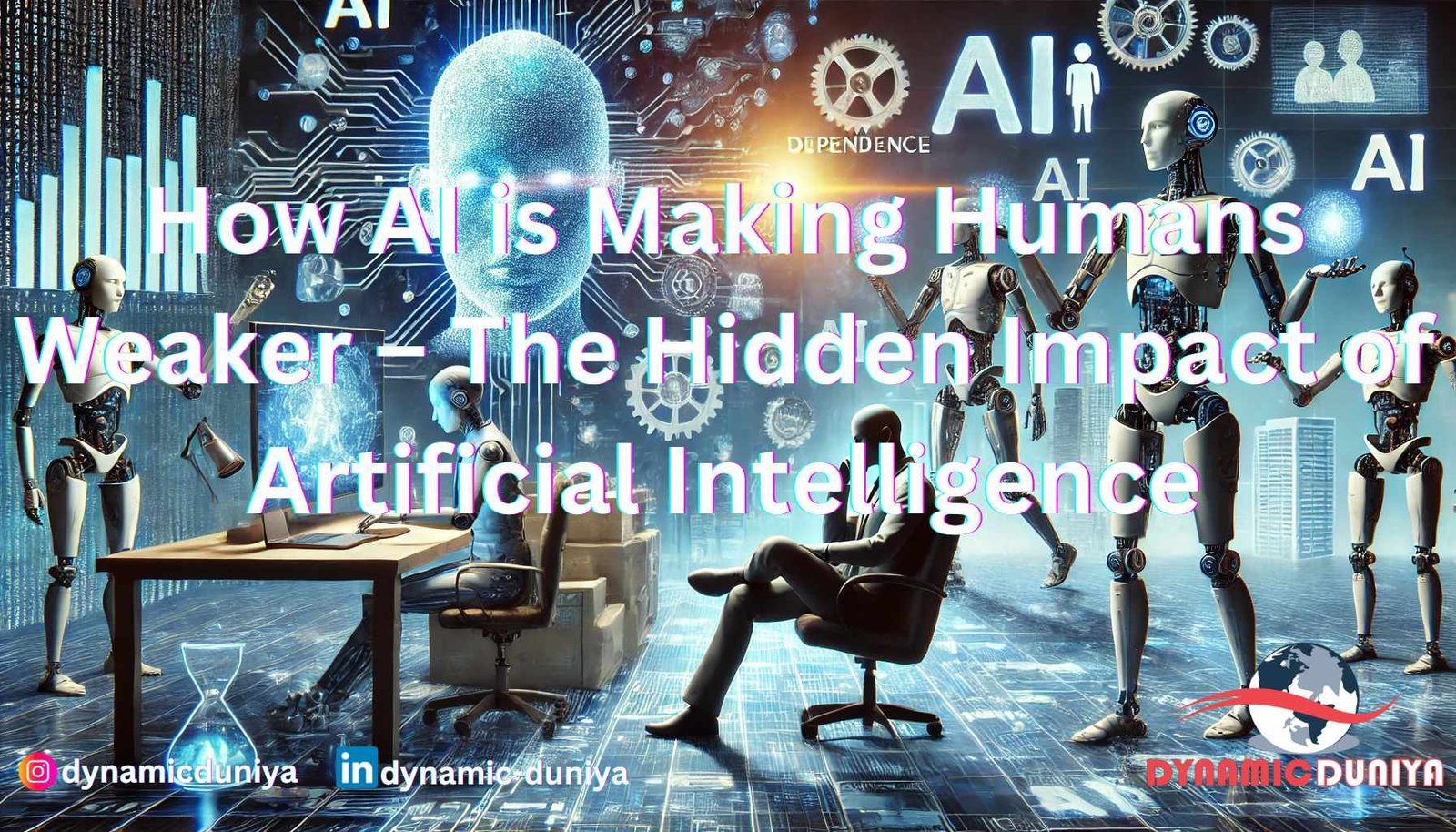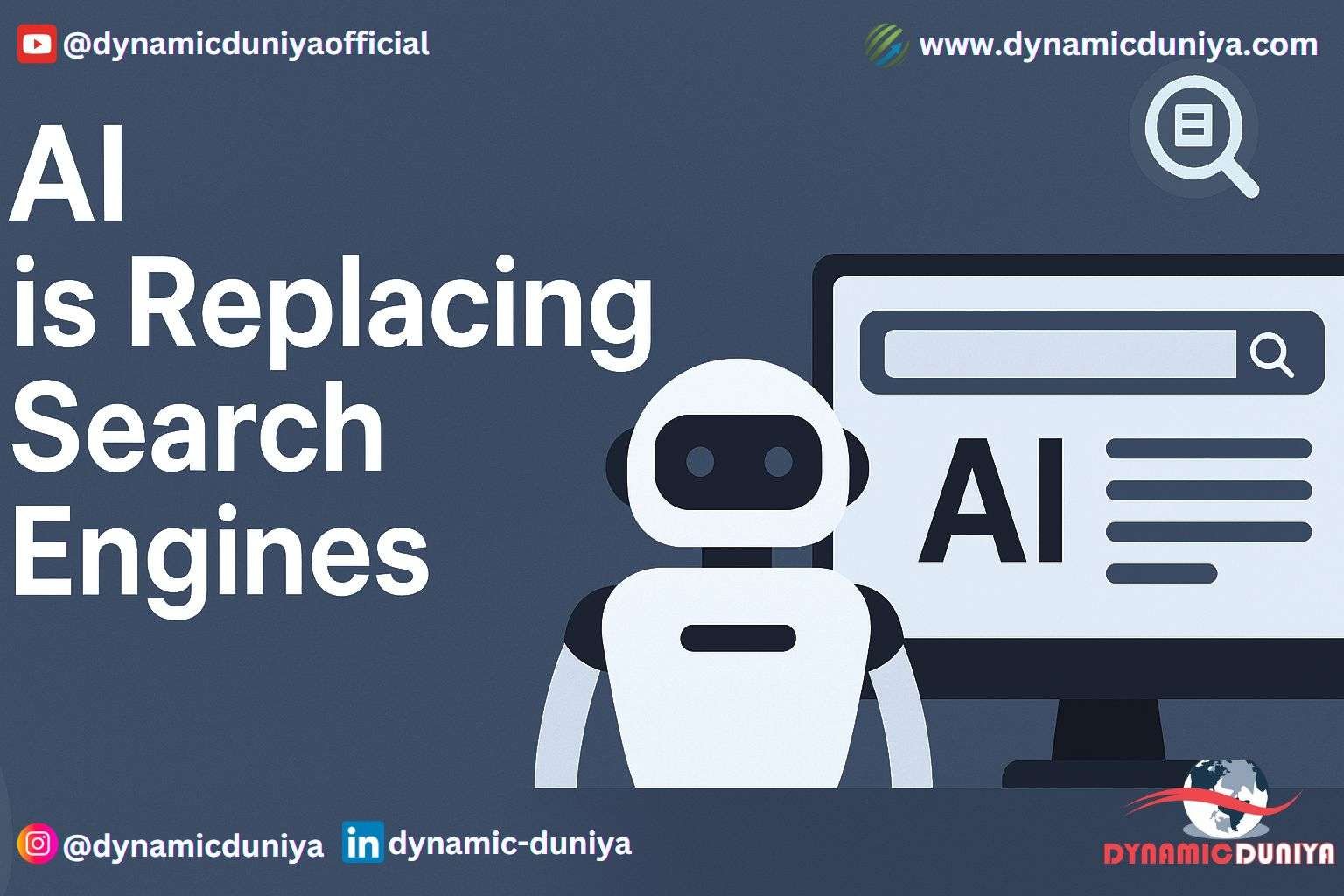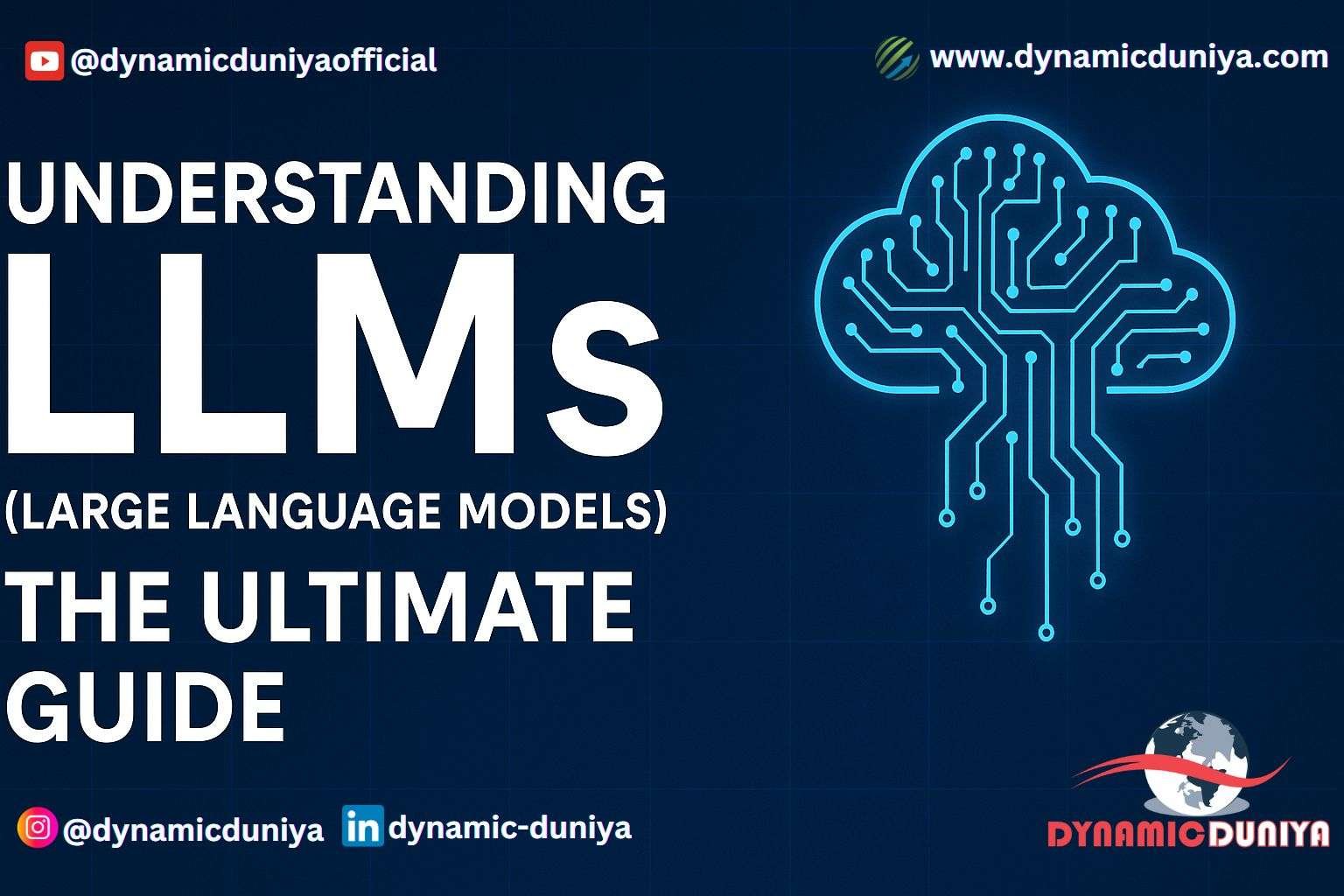How AI is Making Humans Weaker – The Hidden Impact of Artificial Intelligence

Introduction
Artificial Intelligence (AI) is revolutionizing industries, making tasks faster, easier, and more efficient. However, while AI offers convenience, it also raises concerns about its impact on human capabilities. As we rely more on AI, are we losing essential skills like problem-solving, creativity, and critical thinking? In this blog, we’ll explore how AI is making humans weaker and what we can do to prevent over-dependence.
1. The Decline of Critical Thinking
AI-powered tools provide instant answers, reducing the need for deep thinking and problem-solving. Search engines, AI chatbots, and decision-making algorithms handle tasks that once required human effort. Over time, this could weaken our ability to analyze and think independently.
2. The Weakening of Memory and Learning
With AI storing and retrieving information for us, human memory is declining. Instead of remembering facts, we rely on AI-driven assistants like Google, Siri, and ChatGPT. This shift reduces our ability to retain knowledge and recall information when needed.
3. Reduced Creativity
Generative AI tools create art, write content, and compose music, raising concerns about human creativity. As AI produces creative work, individuals may stop exploring their own imaginative abilities, leading to a decline in innovation and original thinking.
4. Loss of Social Skills
AI-driven communication tools, chatbots, and virtual assistants replace real human interactions. This weakens our ability to engage in meaningful conversations, develop empathy, and maintain strong social connections. Overuse of AI in social settings can lead to loneliness and emotional disconnection.
5. Over-Reliance on Automation in Jobs
Automation is replacing many jobs, leading to skill erosion. Employees who once performed complex tasks now depend on AI-driven systems. If people stop learning new skills, they become less adaptable to future job changes, limiting career growth.
6. Decline in Physical Activity
AI-driven smart homes, self-driving cars, and automated systems reduce the need for physical effort. As AI handles daily tasks like grocery shopping, cleaning, and even exercising, humans risk becoming more sedentary, leading to health issues such as obesity and reduced stamina.
7. Loss of Decision-Making Skills
AI-powered recommendations influence our choices in shopping, entertainment, and even life decisions. From what we watch to whom we date, AI-driven algorithms subtly shape our preferences, reducing our ability to make independent choices.
8. Security and Privacy Risks
Over-reliance on AI creates security risks. AI manages personal data, financial transactions, and even security systems, increasing vulnerability to cyberattacks and data breaches. A loss of control over personal data weakens personal security awareness.
How to Maintain Human Strength in the AI Era
While AI offers incredible benefits, we must balance its use with human skill development. Here’s how:
- Enhance Critical Thinking – Question AI-generated answers and engage in problem-solving exercises.
- Develop Creativity – Practice art, writing, and other creative activities without AI assistance.
- Improve Social Skills – Prioritize face-to-face interactions over digital communication.
- Stay Physically Active – Reduce reliance on AI-driven automation for daily tasks.
- Strengthen Decision-Making – Make choices without relying solely on AI-driven recommendations.
Conclusion
AI is a powerful tool, but if overused, it can weaken essential human skills. The key is to use AI as an aid, not a replacement for thinking, creativity, and decision-making. By staying aware of these risks, we can ensure AI enhances human capabilities rather than diminishing them.
Random Blogs
- Best Platform to Learn Digital Marketing in Free
- Navigating AI Careers in 2025: Data Science, Machine Learning, Deep Learning, and More
- AI in Marketing & Advertising: The Future of AI-Driven Strategies
- How to Become a Good Data Scientist ?
- Transforming Logistics: The Power of AI in Supply Chain Management
- Generative AI - The Future of Artificial Intelligence
- Exploratory Data Analysis On Iris Dataset
- Understanding Data Lake, Data Warehouse, Data Mart, and Data Lakehouse – And Why We Need Them
- Datasets for Natural Language Processing
- The Ultimate Guide to Artificial Intelligence (AI) for Beginners
Prepare for Interview
- JavaScript Interview Questions for 5+ Years Experience
- JavaScript Interview Questions for 2–5 Years Experience
- JavaScript Interview Questions for 1–2 Years Experience
- JavaScript Interview Questions for 0–1 Year Experience
- JavaScript Interview Questions For Fresher
- SQL Interview Questions for 5+ Years Experience
- SQL Interview Questions for 2–5 Years Experience
- SQL Interview Questions for 1–2 Years Experience
- SQL Interview Questions for 0–1 Year Experience
- SQL Interview Questions for Freshers
- Design Patterns in Python
Datasets for Machine Learning
- Awesome-ChatGPT-Prompts
- Amazon Product Reviews Dataset
- Ozone Level Detection Dataset
- Bank Transaction Fraud Detection
- YouTube Trending Video Dataset (updated daily)
- Covid-19 Case Surveillance Public Use Dataset
- US Election 2020
- Forest Fires Dataset
- Mobile Robots Dataset
- Safety Helmet Detection
- All Space Missions from 1957
- OSIC Pulmonary Fibrosis Progression Dataset
- Wine Quality Dataset
- Google Audio Dataset
- Iris flower dataset
- Artificial Characters Dataset
- Bitcoin Heist Ransomware Address Dataset




